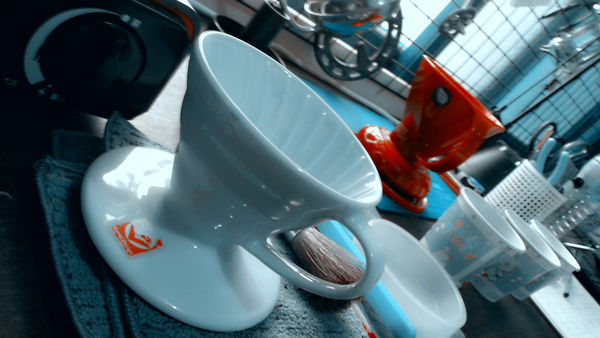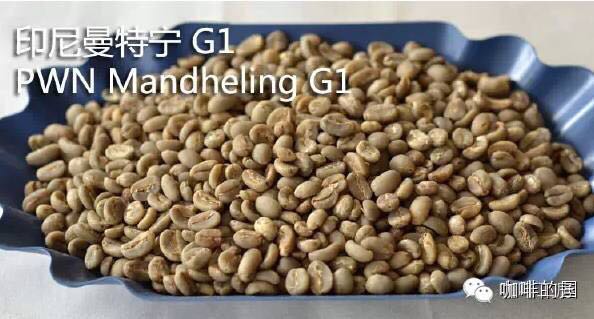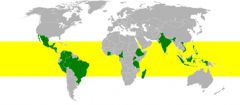Introduction of Coffee producing area-Asian "Taiwan"

For professional baristas, please follow the coffee workshop (Wechat official account cafe_style)
From the point of view of a Taiwanese, let's first make a separate introduction to the production environment of the manor.
Famous Manor: tropical Dance Manor,
Dashan Crystal Manor,
Zou Zhuyuan.
Of course, there are many more, but below I will only introduce the Taiwanese manors that have shone internationally.
On February 2 this year, Han Huaizong, a well-known coffee writer, published "long live Coffee in Taiwan: eight major producing areas and 54 high-quality estates in Taiwan that fascinate coffee masters."
I haven't read it yet, but this coffee writer has written a lot of enlightening books. If you are interested, please search for boutique Coffee and the new edition of Coffee.
Alishan, Leye Zou Zhuyuan, Chiayi County, won the national raw bean evaluation champion in 2007, the top 50 in SCAA in 2010, and won 93 points in Coffee Review professional evaluation.
Alishan, Chiayi County, Tropical Dance Manor, won the 11th place in SCAA in 2009, with a score of 83.5. Although he did not enter the ranking since then, he still got a boutique record of more than 80 points.
Yuci Township, Nantou Prefecture, Dashan Crystal Manor, runner-up in 2011 Japan World siphon Competition, Dashan Crystal with beans. Knudsen, the godmother of coffee, visited Taiwan personally and bought coffee beans from the manor several times.
SCAA is currently the most authoritative boutique coffee organization in the world, famous for its infrared determination of caramelization analysis values.
If a single bean gets a score of more than 80 points in SCAA, it will be officially rated as a high-quality product.
However, it will not widely affect the immediate purchase of self-baked beans, single beans, fine beans, handmade beans and other coffee in the name of origin.
Of course, it would be better for the bean in front of us to have a SCAA score, but usually this choice is generally expensive.
In addition, the various coffee licenses of SCAA are also commonly used internationally, which can be said to be the highest challenge for all operators from the origin to brewing of fine coffee.
Many coffee makers will use the baking degree standard issued by SCAA as their own standard, but there will still be a gap between the actual and the actual (after all, the SCAA test is based on a caramelization tester, which is divided into eight stages).
Coffee Review is a famous coffee evaluation unit.
Whenever a batch of coffee gets more than 90 points in this evaluation, it definitely gives the bean the best image.
This professional evaluation website is not only the index of looking for beans, but also has even launched the evaluation program of formula beans, and the baker can also prove his strength by sending the cooked beans he bakes in this way.
As this evaluation is an internationally famous coffee evaluation, it is necessary to pay NT.8000 and long transportation before and after the trial from Taiwan, so the difference in quality is not good for us to pass on to the rate of return.
I see that some domestic manufacturers have scored more than 90 points in this evaluation, but it is difficult to resonate in front of ordinary customers.
Of course, there are still non-technical difficulties in transferring proof of strength to remuneration, but at least it can still win praise from peers.
The topic comes back to coffee production in Taiwan.
If you want to know more about the three well-known manors mentioned above, there are individual special reports in YOUTUBE.
The history of growing coffee in Taiwan can be traced back to the 10 years of Guang Xu of the Qing Dynasty. British tea merchants introduced seedlings from San Francisco (and some say from Manila) and seeds in the New North three Gorges the following year.
Until the Japanese occupation, around 1942, the Pacific War broke out. The coffee plantation, which has expanded to 1000 hectares, is gradually converted to grain cultivation. By 1953, there were only 4.9 hectares of coffee plantation left.
After the war, the price of coffee skyrocketed, and the government began to plant it in Hebaoshan, Yunlin County, creating the famous Gukeng Coffee.
Taiwan can grow good coffee.
In recent years, coffee production in Taiwan has sprung up like bamboo shoots after a spring rain as it continues to appear in internationally well-known manors.
But in fact, the development of quality is not much, or not enough.
On the other hand, there are many unworthy businessmen who introduce that their own coffee absorbs the essence of the sun and moon on the island, and its flavor is bitter and pleasant, as if Shennong came down to earth.
Indeed, there are more businessmen than the anniversary crowd, making it difficult for us to judge whether Taiwan coffee is good or not.
I once bought a coffee raw bean from the south, which is several times cheaper than the raw beans sold in other Taiwan estates, but the price is similar to that of raw beans around the world, so I chose this cheap one to give it a try.
After receiving the raw beans, observe the appearance of the raw beans and get cold on the back, which is different from other beans of origin. After picking out nearly 20% of the defective beans, the baked beans still showed a frightened, ultra-high proportion of defective beans. Although I was a little discouraged by this, I still plucked up the courage to put the finished product into my mouth.
I'm drinking pesticides at all.
Although the change to the second explosion dense has a more stable performance, but this obviously loses the value of individual coffee.
At present, I am not so disappointed with Taiwan coffee, but at least I am sure that the producer of this coffee has not done more ink experiments on his own beans, and perhaps he does not even know enough about his own varieties.
After all, I tried hundreds of Taiwan beans.
Taiwanese coffee introduced by other well-known baristas usually costs thousands per kilogram, and there is even no channel to buy raw beans (such as Dashan Crystal).
I will try a lot in the future, but according to the price, it is difficult for me to popularize the really good Taiwanese coffee into a product.
1. The CP value is insufficient. I have not drunk it, and I can only explain it from the point of view of data collection.
What I can be sure of is that usually thousands of coffee per kilogram can have better bargaining power only if it is classified as "king of beans".
Of course, the price of island coffee is generally high, such as the Caribbean Blue Mountains of Jamaica, Cuba, or Hawaii Cocona, which can be said to produce state-of-the-art coffee. It is not surprising that they charge thousands of dollars.
But in the case of Taiwan, it may not be able to maintain a stable international reputation because of its low production and instability.
In addition, I have come into contact with a dominion bean of the same Caribbean system, which tastes similar to the Jamaican Blue Mountains and costs only NT.330 per kilogram.
Therefore, the setting of the CP value of the island system is often affected by great price fluctuations or brand impressions.
At present, Taiwan's agricultural production capacity is not suitable for loading cash crops, nor does it need to rely on cash crops to support income.
2. The suitable planting range is limited.
Quite simply, Taiwan is rich in ecological resources and has a small hinterland.
Maintaining rich ecological resources is something that the whole world needs to do.
The hinterland of Taiwan is also small, and the average mountain undulation is very steep, and reclamation as a coffee planting site is either scattered, inadequate, or simply cannot be done.
Therefore, in terms of Taiwan's overall environment.
Taiwan is rich in ecological resources, which can actually be used for better purposes, such as tourism or fine agriculture.
These services and technical industries are the only way to make effective use of Taiwan's precious resources.
Ah, where did the three famous coffee farms come from?
The owner of Zou Zhuyuan, whose father is a tea garden and greenhouse orchid, has its own resources to use. Coupled with the master's unique research spirit, it has created a proof of strength.
The owner of the Tropical Dance Manor is a retirement career, only to become famous overnight.
Dashan Crystal Manor is also a couple engaged in retirement after retirement, but also unexpectedly their own coffee became famous overnight.
Don't think you can be the owner of a coffee farm in Taiwan, let alone think about how to grow coffee to become famous or make a lot of money in Taiwan.
After all, this is not in line with Taiwan's current suitable value, and the above-mentioned manor owners are not as glamorous as they are.
If possible, project the idea as "investing in a manor in Africa, providing jobs for local people, and getting a unique source of beans yourself." I think this is better than growing coffee in Taiwan.
It may be difficult, but it may be as easy as opening an estate in Taiwan.
Europeans have direct farms in Laos, and some coffee makers have independent direct trade relationships in Costa Rica, El Salvador, Dominica and Malawi.
I think it will be better than opening a manor in Taiwan, causing conflicts on different issues, and eventually facing the dilemma that you cannot make ends meet and the resources of the public interest will be damaged.
Therefore, I think it is impossible to find coffee in Taiwan. After all, it is not a good thing to shine for Taiwan.
But unless there are resources or conditions that will not be controversial, there will be places more suitable for us to develop in the coffee industry chain.
The introduction of Taiwan coffee is over, above.
Important Notice :
前街咖啡 FrontStreet Coffee has moved to new addredd:
FrontStreet Coffee Address: 315,Donghua East Road,GuangZhou
Tel:020 38364473
- Prev

About the source of Manning, Manning hand punch practical parameters, gold Manning
For the exchange of professional baristas, please pay attention to the origin of the coffee workshop (Wechat official account cafe_style) Mantenin is not the name of the producing area, the place name, the port name, nor the name of the coffee variety, but how its name originated is actually the phonetic error of the mandheling people in Mandaining, Indonesia. During the Japanese occupation of Indonesia during World War II, a Japanese soldier
- Next

Introduction of Coffee Origin-Asian "Indonesia, India, Vietnam"
For professional baristas, please follow the coffee workshop (Wechat official account cafe_style). These days, I have spent some time collecting and studying coffee producing area information around the world. The latitude zone between the south of the Tropic of Cancer and the north of the Tropic of Cancer is commonly known as the coffee belt, and the reliable producing areas fall within this range. Hua Dou Coffee has some information about each item, but over time
Related
- Detailed explanation of Jadeite planting Land in Panamanian Jadeite Manor introduction to the grading system of Jadeite competitive bidding, Red bid, Green bid and Rose Summer
- Story of Coffee planting in Brenka region of Costa Rica Stonehenge Manor anaerobic heavy honey treatment of flavor mouth
- What's on the barrel of Blue Mountain Coffee beans?
- Can American coffee also pull flowers? How to use hot American style to pull out a good-looking pattern?
- Can you make a cold extract with coffee beans? What is the right proportion for cold-extracted coffee formula?
- Indonesian PWN Gold Mandrine Coffee Origin Features Flavor How to Chong? Mandolin coffee is American.
- A brief introduction to the flavor characteristics of Brazilian yellow bourbon coffee beans
- What is the effect of different water quality on the flavor of cold-extracted coffee? What kind of water is best for brewing coffee?
- Why do you think of Rose Summer whenever you mention Panamanian coffee?
- Introduction to the characteristics of authentic blue mountain coffee bean producing areas? What is the CIB Coffee Authority in Jamaica?

